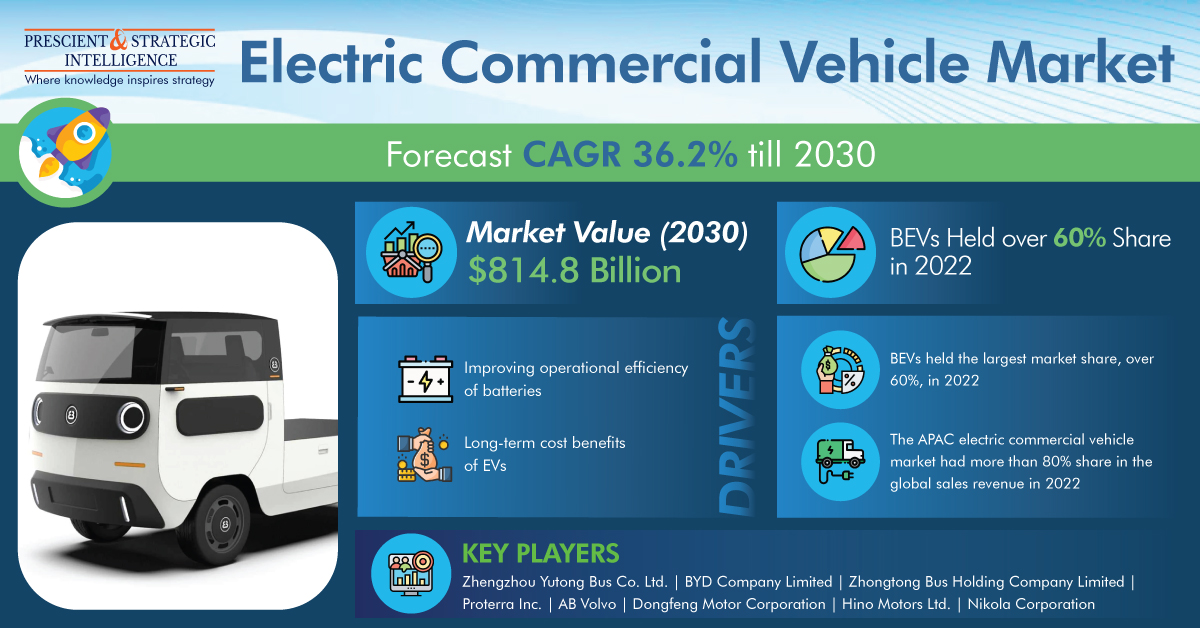The electric commercial vehicle market has captured $68.9 billion revenue in 2022, and it is projected to generate $814.8 billion revenue in 2030, rising at a rate of 36.2% from 2022 to 2030, according to P&S Intelligence. The electric commercial vehicle market has captured $68.9 billion revenue in 2022, and it is projected to generate $814.8 billion revenue in 2030, rising at a rate of 36.2% from 2022 to 2030, according to P&S Intelligence.

Declining Costs Boost Adoption of Commercial EVs
The decreasing cost and rising operational efficiency of batteries and the long-term cost benefits of EVs for fleet operators fuel the industry’s growth. Besides, the rising concerns over GHG emissions and surging government support, in the form of subsidies and grants, for such vehicles are projected to offer advantages to the industry in the near future.
Significant Commercial EV Traction in China and India
● Metropolitan cities in China are excessively polluted. Therefore, the government is taking strategic measures to reduce air pollution, such as implementing stringent emission norms and promoting electric vehicles in commercial fleets.
● In the same way, India has strengthened its focus on replacing conventional buses with electric ones. In this regard, Delhi Transport Corporation has set an example with its ambitious plans to have 8,000 battery electric buses by 2025.
Get the sample pages of this report: https://www.psmarketresearch.com/market-analysis/commercial-electric-vehicle-market/report-sample
Rising Environmental Concerns Prompting Governments to Encourage EVs
● In addition, numerous governments have announced a ban on the usage of traditional diesel-based commercial vehicles, to reduce carbon emissions.
● Moreover, since buses are key to urban transport systems and trucks to logistical operations, their electric variants are being promoted via purchase subsidies and other benefits for buyers.
● BEVs capture the largest industry share, of more than 60%, ascribed to the government incentives, subsidies, and other financial advantages to encourage the adoption of eco-friendly vehicles.
Operators’ Evolving Business Models Fueling Commercial EV Success
Companies are adopting new business models to reduce the high upfront costs of EVs. Many fleet operators are procuring e-buses in collaboration with city governments. Some operators are even adopting the battery swapping and leasing concepts, as a pre-installed battery makes an EV expensive.